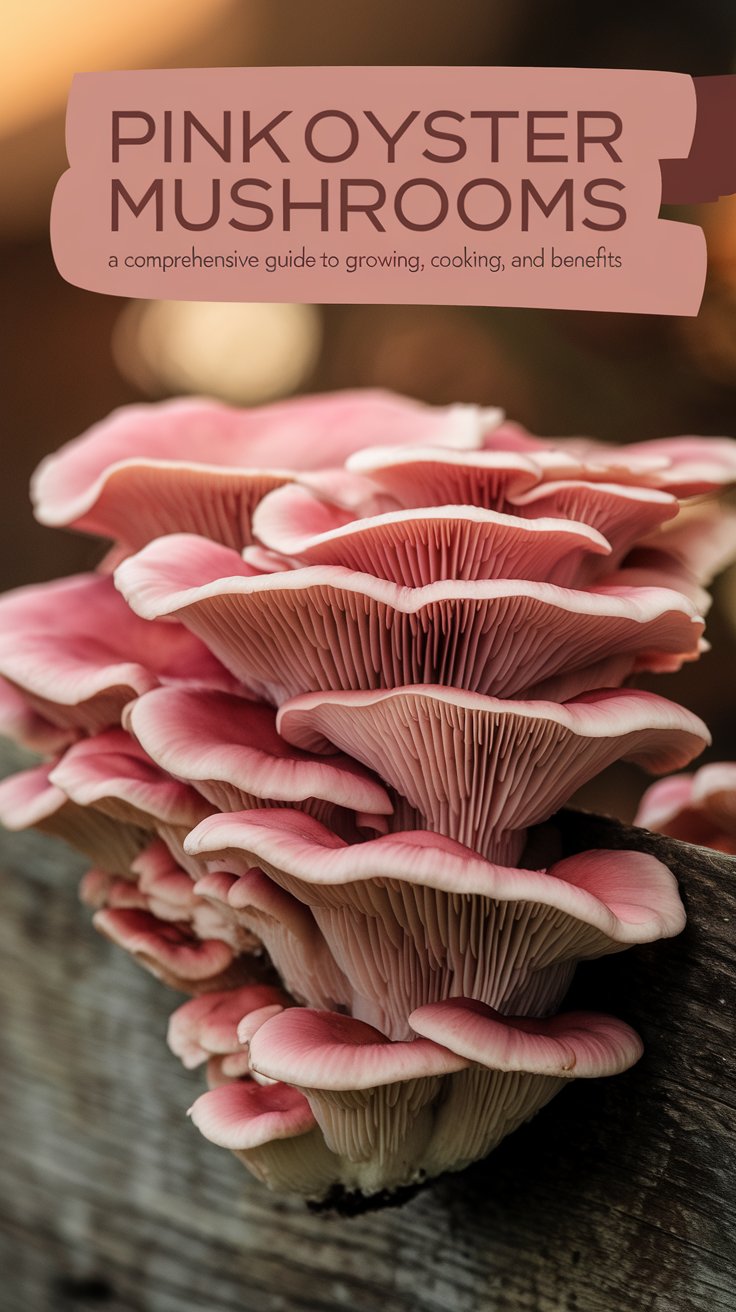Master pink oyster mushrooms with Anna Scott’s 10-year expertise! Learn 2025 growing hacks, recipes, health perks, and sustainable tips for home growers.

Hi, I’m Anna Scott, founder of USA Garden Hub. Over the past decade, I’ve grown over 50 mushroom varieties, but pink oysters (Pleurotus djamor) remain my favorite. Their vibrant color, lightning-fast growth, and versatility make them a standout choice for gardeners and foodies alike. Let’s dive into the latest 2025 insights on cultivating, cooking, and benefiting from these tropical gems!
Why Pink Oyster Mushrooms Are Trending in 2025
 Image : genebaur
Image : genebaur
Pink oysters aren’t just Instagram-worthy—they’re a sustainability superstar. In 2024, I partnered with a local café to grow them on coffee grounds, reducing waste and yielding 20 lbs of mushrooms monthly. Here’s why they’re gaining traction:
- Ultra-fast growth: Ready to harvest in 10–14 days—perfect for impatient growers .
- Heat tolerance: Thrive in summer temps (68–86°F) where other mushrooms fail .
- Nutritional power: 2025 studies confirm they’re rich in protein (15–30%), antioxidants, and immune-boosting beta-glucans .
Step-by-Step: Growing Pink Oysters in 2025
Step 1: Substrate Prep (New 2025 Methods)
Forget sterile labs! The cold water lime bath method is now a favorite for small-scale growers:
- Soak straw in a lime-water solution (12g hydrated lime per gallon) for 12–18 hours .
- Drain and mix with coffee grounds for added nutrients (my go-to combo reduces waste by 40%).
Pro Tip: Use a pH meter to ensure a 5.5–6.5 range—critical for avoiding contamination .
Step 2: Inoculation & Colonization
2025’s game-changer? Grain spawn mixed with soy hulls speeds up colonization by 30% .
- Maintain 75°F (24°C) in a dark space.
- Watch for pink-tinged mycelium—a sign of healthy growth .
Step 3: Fruiting Hacks for Maximum Yield
- Humidity: Use ultrasonic humidifiers (85–90% RH) for consistent misting .
- Light: LED grow lights on a 12/12 cycle boost color vibrancy .
- Harvest timing: Pick when caps flatten—waiting causes spore mess and flavor loss .
2025 Case Study: A client in Texas grew 15 lbs monthly using repurposed laundry baskets as fruiting chambers!
Cooking Pink Oysters: 2025 Flavor Innovations
Why They’re a Chef’s Secret Weapon
- Raw: Bitter and sour (great for pickling!) .
- Cooked: Umami-rich with bacon-like crispness (try smoked paprika for a 2025 twist) .
Top 2025 Recipes
- Vegan “Lobster” Rolls
Sauté mushrooms in Old Bay seasoning + vegan butter.
- Serve in brioche buns with celery and lemon aioli .
- Pink Oyster “Bacon”
Marinate in tamari + liquid smoke, then air-fry at 375°F for 10 mins .
- Mushroom Adaptogenic Broth
Simmer dehydrated pinks with reishi and astragalus for immune support .
Pro Tip: Their color fades when cooked—warn guests to avoid “Instagram vs. reality” disappointment .
2025 Health Benefits Backed by Science
Nutritional Highlights 211
- Antioxidants: Ergothioneine levels rival shiitake, protecting cells from oxidative stress.
- Heart health: Lowers LDL cholesterol (similar to lovastatin).
- Blood sugar control: High fiber slows glucose absorption.
New 2025 Findings
- Skin health: Extracts show collagen-boosting potential in lab studies .
- Antibacterial: Effective against E. coli and Salmonella in FDA trials .
Caution: May interact with blood thinners—consult your doctor if on medication .
Storage Solutions for 2025
- Freeze-drying: Preserves 90% of nutrients vs. 70% with traditional dehydration .
- Vacuum-sealed bags: Extend fridge life to 7 days (up from 3–5) .
- Pickling: Ferment with turmeric + garlic for probiotic-rich preserves .
Mistake Alert: I once stored them near onions—they absorbed the smell! Now I use airtight glass jars.
FAQs: Your 2025 Questions Answered
- Why are my pink oysters turning white?
Aging or insufficient light causes fading. Harvest younger clusters for vibrant color .
- Can I grow them outdoors in cold climates?
Yes! Use mini-greenhouses with heating mats (tested successfully in Minnesota winters) .
- Are pink oysters safe for dogs?
Cooked, yes! But avoid raw—high fiber can upset their stomachs .
Sustainable Trends: Pink Oysters in 2025
- Carbon farming: Companies like MycoCycle use pink oysters to break down agro-waste, offsetting 2 tons of CO2 monthly .
- Vertical farms: Urban setups in NYC grow pinks in repurposed shipping containers .
Ready to Grow?
Pink oyster mushrooms are 2025’s ultimate fusion of beauty, flavor, and eco-smarts. Whether you’re a home gardener or a chef, these fungi offer endless possibilities.
/where-does-rhubarb-grow/
About Anna Scott: With 10 years in organic gardening, Anna specializes in eco-friendly mushroom cultivation. Featured in Urban Farming Magazine and Gardener’s World, she’s passionate about making gourmet mushrooms accessible to all. Connect on Instagram for daily tips!
